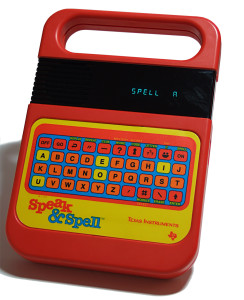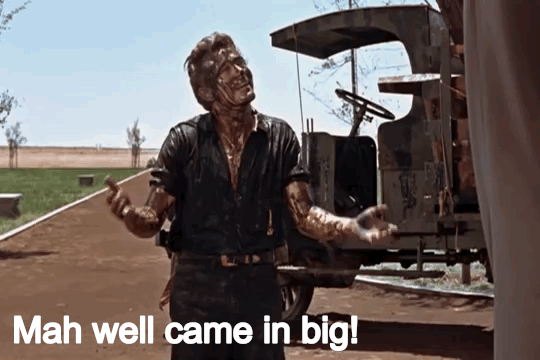The Fifth Court has now joined the line of cases stating that CPRC § 38.001 only allows an award of attorneys fees against certain kinds of business entities (although bypassing the actual application of that statement on the specific, conflicting facts presented about the defendants’ business structure): “Under the plain language of section 38.001, a trial court cannot order limited liability partnerships (L.L.P.), limited liability companies (L.L.C.), or limited partnerships (L.P.) to pay attorneys’ fees.” Varel Int’l Indus., LP v. PetroDrillBits Int’l, Inc., No. 05-14-01556-CV (Aug. 30, 2016) (mem. op.)
Monthly Archives: August 2016
 Ten Hagen Excavating, Inc. v. Castro-Lopez presents a detailed review of the evidence about a serious truck accident, involving issues of tort law beyond the usual scope of this blog. As a matter of style, the opinion is notable for deftly using accident photos in its description of and analysis of the issues, as well as a diagram of how the accident happened. No. 05-15-00902-CV (Aug. 29, 2016).
Ten Hagen Excavating, Inc. v. Castro-Lopez presents a detailed review of the evidence about a serious truck accident, involving issues of tort law beyond the usual scope of this blog. As a matter of style, the opinion is notable for deftly using accident photos in its description of and analysis of the issues, as well as a diagram of how the accident happened. No. 05-15-00902-CV (Aug. 29, 2016).
 Despite a contract between Texas Instruments and Volt, an employment agency, saying that Volt was an independent contractor, the Fifth Court reversed a jury verdict on the issue of whether Udell – a worker supplied by Volt – was an employee for p
Despite a contract between Texas Instruments and Volt, an employment agency, saying that Volt was an independent contractor, the Fifth Court reversed a jury verdict on the issue of whether Udell – a worker supplied by Volt – was an employee for p urposes of workers compensation. Reviewing the record in detail, the Court concluded that “Udell was working on TI’s premises, in furtherance of TI’s day-to-day business, and the detail
urposes of workers compensation. Reviewing the record in detail, the Court concluded that “Udell was working on TI’s premises, in furtherance of TI’s day-to-day business, and the detail
s of Udell’s work that gave rise to his injury were directed by TI.” Texas Instruments v. Udell, No. 05-14-01042-CV (Aug. 24, 2016) (mem. op.)
 In Cooper v. Campbell, the Fifth Court reviewed the key principles that govern “equitable remedies such as disgorgement and forfeiture to remedy a breach of fiduciary duty” —
In Cooper v. Campbell, the Fifth Court reviewed the key principles that govern “equitable remedies such as disgorgement and forfeiture to remedy a breach of fiduciary duty” —
- “The central purpose of forfeiture as an equitable remedy is not to compensate the injured principal, but to protect relationships of trust by discouraging disloyalty.
- “Disgorgement is compensatory in the same sense as attorney fees, interest, and costs, but it is not damages. . . . In fact, a claimant need not prove actual damages to succeed on a claim for forfeiture because they address different wrongs. In addition to serving as a deterrent, forfeiture can serve as restitution to a principal who did not receive the benefit of the bargain due to his agent’s breach of fiduciary duty. . . .”
- “The amount of disgorgement is based on the circumstances and is within the trial court’s discretion.”
The Court then remanded for more fulsome consideration of factors identifed in ERI Consulting Engineers v. Swinnea, 318 S.W.3d 867 (Tex. 2010). No. 05-15-00340-CV (Aug. 24, 2016) (mem. op.) On the general subject of disgorgement, other useful references from the Fifth Court are its recent opinion in Premier Pools Management Corp. v. Premier Pools Inc., and McCullough v. Scarbrough, Medlin & Associates, 435 S.W.3d 871, 904 (Tex. App.-Dallas 2014, pet. denied).
I n some detail, the district court ordered Altesse Healthcare not to deplete the assets of a business, whereupon: “Altesses’s actions in failing to comply with the TRO resulted in destroying the value of the company over which the lawsuit was based. In essence, Altesse took over running the company and then failed to make the scheduled payments when due, leaving the Wilsons without the company or payment. After the trial court ordered Altesse to return the company to the Wilsons, Altesse delayed and by the time it returned the necessary assets to run the business, there was little left to run.” The Fifth Court affirmed the trial court’s detailed order awarding “death penalty” sanctions and other penalties, including contempt. Altesse Healthcare Solutions v. Wilson, No. 05-15-00906-CV (Aug. 23, 2016) (mem. op.)
n some detail, the district court ordered Altesse Healthcare not to deplete the assets of a business, whereupon: “Altesses’s actions in failing to comply with the TRO resulted in destroying the value of the company over which the lawsuit was based. In essence, Altesse took over running the company and then failed to make the scheduled payments when due, leaving the Wilsons without the company or payment. After the trial court ordered Altesse to return the company to the Wilsons, Altesse delayed and by the time it returned the necessary assets to run the business, there was little left to run.” The Fifth Court affirmed the trial court’s detailed order awarding “death penalty” sanctions and other penalties, including contempt. Altesse Healthcare Solutions v. Wilson, No. 05-15-00906-CV (Aug. 23, 2016) (mem. op.)
 We all too easily forget that the requirements of a good appellate brief are defined by law, as recently noted in Lau v. Reeder, No. 05-14-01459-CV (Aug. 16, 2016) (mem. op.)
We all too easily forget that the requirements of a good appellate brief are defined by law, as recently noted in Lau v. Reeder, No. 05-14-01459-CV (Aug. 16, 2016) (mem. op.)
As to the issues presented, “a brief must state concisely all issues for review and reveal the legal questions we are called upon to decide. See TEX. R. APP. P. 38.1(f); Bolling v. Farmers Branch Indep. Sch. Dis., 315 S.W.3d 893, 896 (Tex. App.—Dallas 2010, no pet.).”
As to the record citations that accompany the argument, the Justices “have no right or obligation to search through the record to find facts or research relevant law that might support an appellant’s position because doing so –4– would ‘improperly transform this Court from neutral adjudicators to advocates.’ Chappell v. Allen, 414 S.W.3d 316, 321 (Tex. App.—El Paso 2013, no pet.)”
And as to good draftsmanship, a brief does not violate the rules but is notably unhlepful when the table of contents “indicates that the argument portion of the brief for all nine issues is located on pages 18 to 94 without any indication or notation as to where specific issues are addressed,” and the 77-page argument section “also does not denote where each of the nine issues is discussed and the only arguable headings in this section do not identify the issues to which they are attached.”
 My colleagues Michael Hurst and Jonathan Childers recently spoke at the Dallas Bar Association Oil & Gas Update; here is their powerpoint, which provides a great summary of the law today on the key topics in oil and gas cases.
My colleagues Michael Hurst and Jonathan Childers recently spoke at the Dallas Bar Association Oil & Gas Update; here is their powerpoint, which provides a great summary of the law today on the key topics in oil and gas cases.
 While affirming a $4 million judgment related to a truck accident – most of which involved a series of Daubert challenges — the Fifth Court provided some rare appellate guidance about the use of video animation in the courtroom. Specifically, Smith – the plaintiff’s accident reconstruction expert – prepared an animation to accompany and illustrate his testimony about how the accident occurred.
While affirming a $4 million judgment related to a truck accident – most of which involved a series of Daubert challenges — the Fifth Court provided some rare appellate guidance about the use of video animation in the courtroom. Specifically, Smith – the plaintiff’s accident reconstruction expert – prepared an animation to accompany and illustrate his testimony about how the accident occurred.
The Court found no error. As to foundation, it said: “As to the video animation, we note the video was not admitted into evidence but was shown during Smith’s testimony for demonstrative purposes. Defense counsel objected ‘on the grounds of 403.’ Smith testified he measured Gaston’s truck and two similar trailers ‘in order to get data to fill in the animation.’ It was not possible to ‘match tire to track,’ but Smith made a generalized analysis of marks on the roadway he described as an ‘approximation.’ Smith testified the animation was not a simulation and ‘not an exact replication of what happened,’ but it was ‘an accurate representation of what occurred.’”
As to admissibility and waiver, it held: “Earlier in the trial, Smith was allowed to express his underlying opinion without objection when the testimony was presented to the jury. Since the animation was a graphic depiction of the opinion admitted into evidence without
objection, Greenwood’s trial objection to the video depiction of that opinion was waived. Video animation and other demonstrative evidence that ‘summarize, or perhaps emphasize, testimony are admissible if the underlying testimony has been admitted into evidence, or is subsequently admitted into evidence.'” (citations omitted) Greenwood Motor Lines v. Bush, No. 05-14-01148-CV (Aug. 17, 2016).
 Plaintiffs sued for libel, based on four articles in the Korea Town News (N.B. – Dallas has the largest Korean-American community in Texas). Unfortunately, the TCPA “anti-SLAPP” statute applied, because the articles dealt with “the proposed sale of an office building . . . for use as a community center, which would be purchased “in part with funds raised by the public.” And the statements at issue were not actionable, as they “the majority of these statements concern the value of the building . . . the appraisal value of the building, the purchase price, and its market value.” Accordingly, the Fifth Court affirmed the dismissal of Plaintiffs’ claim — and the resulting award of attorneys fees under the TCPA. Mansik & Young Plaza LLC v. K-Town Management LLC, No. 05-15-00353-CV (Aug. 15, 2016) (mem. op.)
Plaintiffs sued for libel, based on four articles in the Korea Town News (N.B. – Dallas has the largest Korean-American community in Texas). Unfortunately, the TCPA “anti-SLAPP” statute applied, because the articles dealt with “the proposed sale of an office building . . . for use as a community center, which would be purchased “in part with funds raised by the public.” And the statements at issue were not actionable, as they “the majority of these statements concern the value of the building . . . the appraisal value of the building, the purchase price, and its market value.” Accordingly, the Fifth Court affirmed the dismissal of Plaintiffs’ claim — and the resulting award of attorneys fees under the TCPA. Mansik & Young Plaza LLC v. K-Town Management LLC, No. 05-15-00353-CV (Aug. 15, 2016) (mem. op.)
 In Premier Pools Management Corp. v. Premier Pools Inc., the Fifth Court found that a successful trademark plaintiff had established sufficient evidence of secondary meaning for the phrase “Premier Pools,” noting — in particular — the plaintiff’s proof about its advertising about and long use of the name, as well as the testimony of nine impartial witnesses about the issue of confusion. Similar evidence supported the findings for liability, damages, and disgorgement. The Court reversed the related declaratory judgment (and with it, the attorney’s fees award), finding that the “claim added nothing and provided access to no remedy that was not otherwise available . . . ” No. 05-14-01388-CV (Aug. 12, 2016) (mem. op.)
In Premier Pools Management Corp. v. Premier Pools Inc., the Fifth Court found that a successful trademark plaintiff had established sufficient evidence of secondary meaning for the phrase “Premier Pools,” noting — in particular — the plaintiff’s proof about its advertising about and long use of the name, as well as the testimony of nine impartial witnesses about the issue of confusion. Similar evidence supported the findings for liability, damages, and disgorgement. The Court reversed the related declaratory judgment (and with it, the attorney’s fees award), finding that the “claim added nothing and provided access to no remedy that was not otherwise available . . . ” No. 05-14-01388-CV (Aug. 12, 2016) (mem. op.)
Ebola nurse’s injunction against THR reversed because expert testimony required to establish causation to support temporary injunction
August 4, 2016Most people will know the origin story of this appeal. In 2014, Nina Pham was working at a nurse at Texas Health Presbyterian Hospital Dallas, a hospital in the Texas Health Resources (“THR”) hospital system. She was tasked with caring from Thomas Duncan, who was diagnosed with Ebola. Pham cared for Duncan for several days. After treating Duncan, Pham was also diagnosed with Ebola. She and her adorable dog became well known the world over, but Pham claimed that THR was negligent in its policies, allowing her to contract Ebola.
In Texas Health Resources, et al. v. Pham, (August 3, 2016), the Dallas Court of Appeals considered an interlocutory appeal of a temporary injunction prohibiting THR from moving forward in a parallel administrative proceeding in the Texas Department of Insurance to determine if Ms. Pham was an employee of THR for purposes of the workers’ compensation statute. If she was an employee of THR, then workers’ compensation would be her exclusive remedy. The trial court issued a temporary injunction barring THR from proceeding before the Texas Department of Insurance because a decision in favor of THR would deprive the trial court of jurisdiction over Ms. Pham’s claims.
The Dallas Court of Appeals reversed the temporary injunction in an opinion that focuses solely on the issue of Ms. Pham’s probable right to recovery. Ms. Pham had argued that expert testimony establishing that she contracted Ebola as a result of THR’s negligence was unnecessary at the temporary injunction stage, pointing to evidence of inadequate training and procedures relating to the treatment of Ebola. She also pointed to statements by an insurance adjuster suggesting that Ms. Pham contracted Ebola due to inadequate policies and procedures. But the Court of Appeals was not persuaded. It noted that evidence of a probable right of recovery must be evidence that “under applicable rules of law, establishes a probable right of recovery.” It held that under the circumstances presented, the “applicable rules of law” would require expert testimony establishing causation, a requirement that was not excused at the temporary injunction stage. Without expert testimony of causation, Ms. Pham could not establish a probable right of recovery necessary to support a temporary injunction, allowing the Court of Appeals to avoid deciding whether a trial court can enjoin a parallel administrative proceeding.
